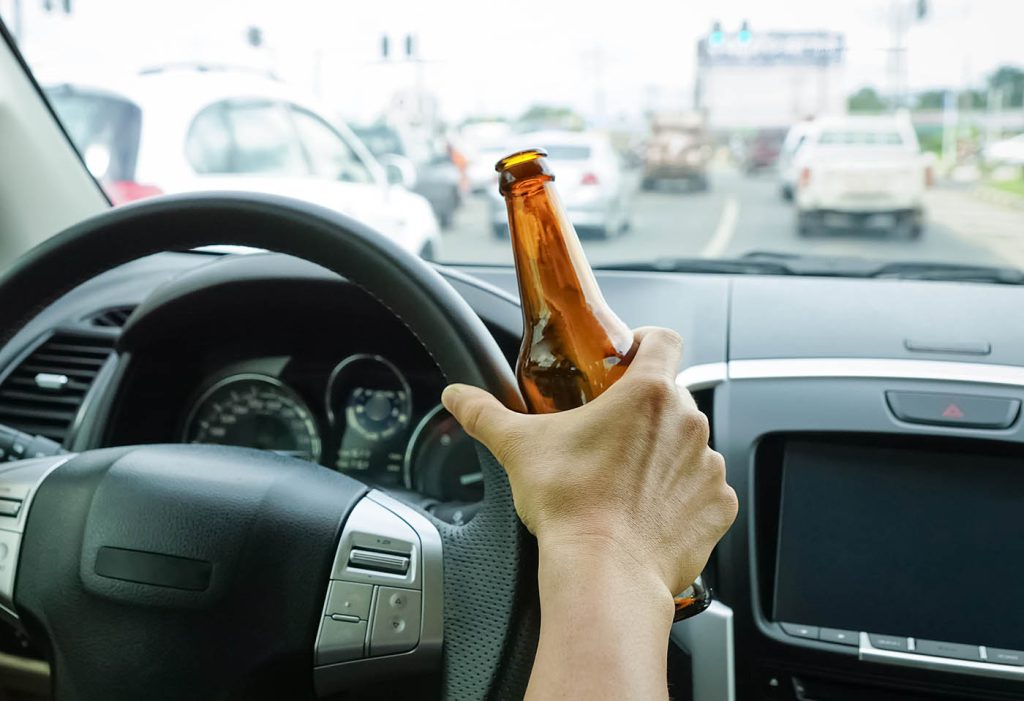For ordinary drivers, truck crashes are perhaps the most terrifying and overwhelming of auto accidents. According to the 2020 data from the Federal Motor Carrier Safety Administration (FMCSA), 83 percent of those killed in large truck accidents were not the ones in the truck. In Indiana alone, there were 157 deaths due to large truck or bus crashes that year.
If you have been through an accident involving a truck or another commercial motor vehicle (CMV), you may want to know how to stop the driver from causing another crash like yours. The federal government and the state of Indiana both take CMV driver offenses seriously, and the driver may be suspended for months, years, or even for a lifetime, depending on the circumstances of the crash. There may even be consequences for the company that sent them on the road.
Safety Regulations for Drivers
The FMCSA oversees the operations of CMVs that travel between states in the US. To maintain safety and efficiency, truck drivers must follow FMCSA codes, some of which expressly forbid dangerous behaviors and set civil penalties—heavy fines—for each violation. Companies can also face these fines, as they often force driver behavior. If these fines go unpaid, they can no longer operate legally. However, these behaviors persist, even those that pose a particular danger in the industry.
Truck driver fatigue—a major cause of accidents—is one of these, often driven by financial pressures. Hours of service (HOS) regulations set out the maximum time periods that a driver may work, depending on the vehicle, the weather, and the job. Currently, a typical cargo truck driver may work for a 14-hour period, and they may drive for 11 of those hours, with one required 30-minute break. They may not work more than 60 hours over 7 days or 70 hours over 8 days. These hours must be kept through regulated logs or logging devices. If a driver violates these rules, they can face suspension and civil penalties of $18,170 or more. Interfering with the records or failing to keep them will also incur civil penalties and possible criminal liability.
Mechanical failures are another top cause of truck accidents (source). To avoid the dangers of poorly maintained trucks, drivers must inspect their trucks after each day’s work and repair any problems that are likely to affect the vehicle’s safety. Their trucks must also pass a yearly inspection to federal standards. Again, they must keep records of these inspections or face fines, and they cannot operate trucks that have failed inspection.
CMV drivers in interstate commerce must follow many more regulations under federal law, some of which carry the possibility of criminal charges. They are also bound to follow state law for CMVs. Under federal law, a driver who breaks one of any number of state traffic laws faces a period of disqualification in which they may not operate as a CMV driver. These penalty periods range from sixty days for moving violations to a lifetime ban, with or without the possibility of reinstatement, for major offenses or multiple convictions.
Indiana maintains its own CMV regulations for trucks operating within Indiana, and truck drivers face penalties in state court for violations, which can include suspension. Drivers who have been suspended for traffic offenses in ordinary vehicles are also suspended as CMV drivers, and they are not allowed to drive trucks until their suspension is over.
How to Hold a Driver Accountable
An experienced truck accident attorney understands the importance of obtaining as much evidence as possible. Most modern CMVs are outfitted with a heavy vehicle electronic data recorder (HVEDR). An HVEDR records a broad range of data on the vehicle’s operation, including the circumstances around its last braking incident or sudden deceleration. This can help reveal whether a driver behaved irresponsibly or whether a sudden mechanical failure caused an accident. If you contact an attorney as soon as possible after an accident, the attorney will be able to move quickly to request access to HVEDR data—which, if the accident was severe, might otherwise go missing with a “totaled” vehicle. When necessary, attorneys can consult crash reconstruction experts to determine what happened in the last critical seconds.
An attorney can also examine the truck driver’s record, determining whether they were lawful commercial driver’s license (CDL) holders and whether they should have been operating their vehicle at that time. Federal requirements for CDLs are extensive, and Indiana maintains its own system of qualifications and endorsements. After an accident, it may become clear that a negligent truck driver was committing a license violation—for example, driving a heavier class of vehicle than they were qualified for. Investigating the driver thoroughly will assist in your recovery of damages, which should always be your attorney’s priority. Convincing evidence of violations can help encourage the driver’s insurance company to settle quickly and award you the damages you deserve.
Your damages and expenses may include:
- Medical bills
- Lost wages
- Future earnings
- Property damage
- Emotional distress
- Pain and suffering
If you have lost a loved one in a truck accident, please speak to us about the possibility of pursuing a wrongful death suit against the driver and their employer.
In Indiana, you have two years to file a personal injury lawsuit, but in an auto accident case, every moment counts. Our office knows that, at the final reckoning, the case is about you and your family’s needs. Contact Beeman Heifner Benge, P.A., at (765) 234-8024 to schedule an appointment to discuss your case.

 CALL US NOW
CALL US NOW











